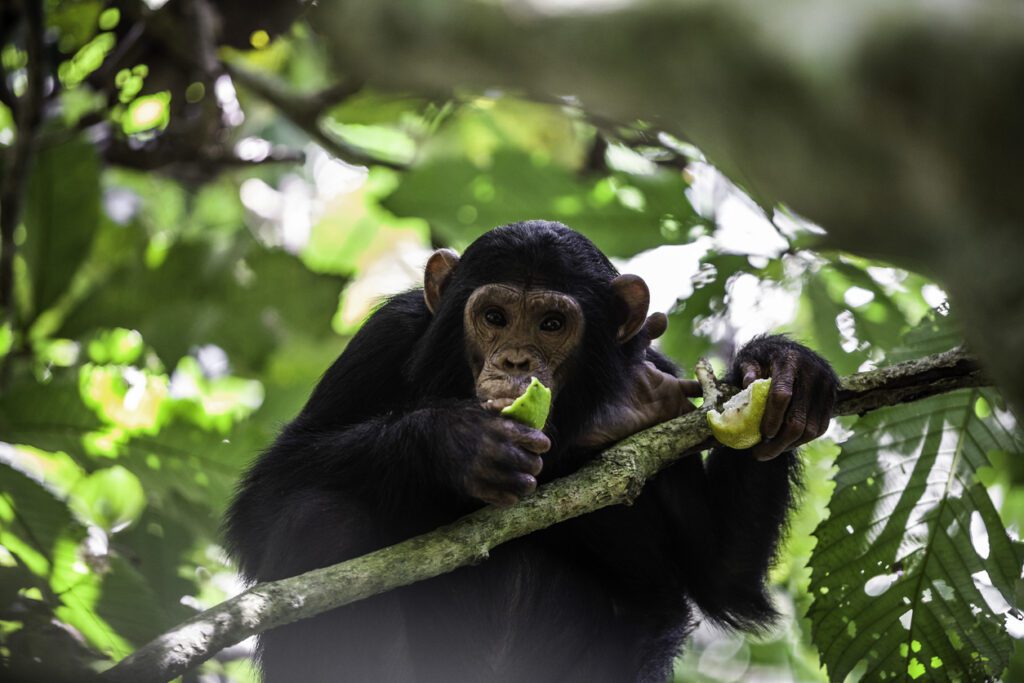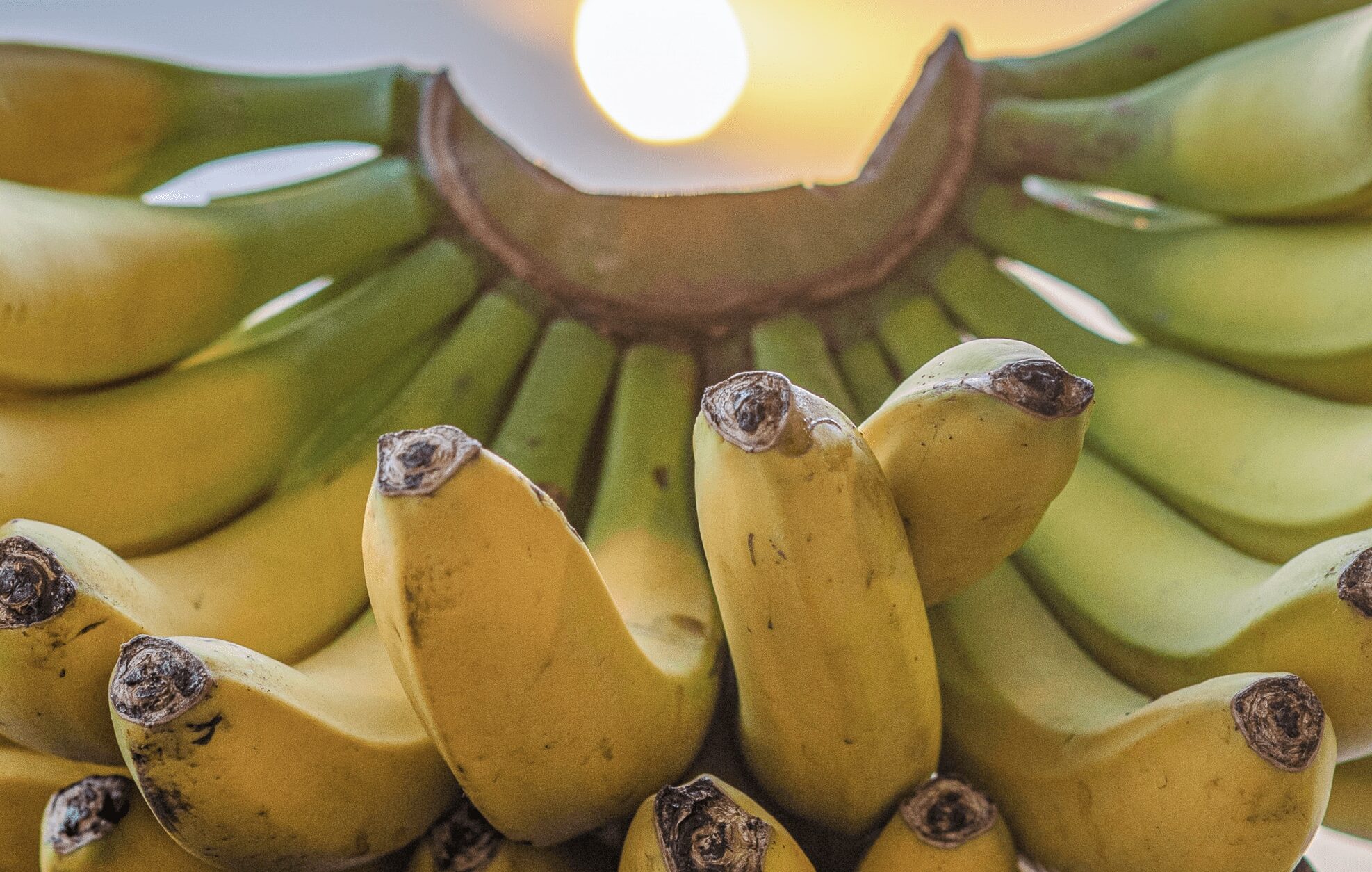A healthy, nourished body is decisive for high fertility. Ancient cultures knew how to prepare women for those most important times. We, on the other hand, hardly know about the factors involved in fertility and instead force our bodies into pregnancy, despite running low on resources.
It is no surprise that conceiving has become challenging in today’s toxic world for men and women. But we can do something to increase our chances dramatically! Here I list important – but most neglected – nutrients and dietary changes that play a huge role in the hormonal system and fertility.
Creating a clean, nurturing environment for a new life to develop is always a good idea. Therefore the best advice – to achieve and maintain pregnancy, plus the best possible start for a newborn baby – is to deeply detox, nourish and regenerate your body. This will balance hormones naturally and reduce the risk that accumulated damage and toxins from a lifetime of exposures will affect your baby. But also male fertility and sperm health can greatly benefit from the nutrients and foods discussed here!
Nutrition and fertility go hand in hand
Here is the good news: There are some factors – which you might not have considered so far – that make all the difference in fertility. Specific nutrients and reduction of the toxic burden on the body can disturb your endocrine system and, thus, your ability to get pregnant! It is a well-known concept in biology that the body of female animals prevents pregnancy if the outcome could be fatal for the offspring or for herself. After all, pregnancy is the single most energy-costly and risky process in the life of an animal. The organism has to be strong and ready to survive pregnancy in nature in order to “allow” a pregnancy. Thus, undoubtedly, boosting health is the basis of fertility. And nutrition, diet, and, nowadays, detoxification are the fundamentals of health and fertility!

In ancient cultures, nutrition and fertility go hand in hand as fertility is highly dependent on nutrition and resulting health. For example, in Hinduism, the goddess of fertility and motherhood, Parvati, also manifests as the goddess of food and nourishment, Annapoorna. And while non-religious people might not relate to this type of information, the conceptual knowledge of the ancients often matches modern scientific findings.
So let’s dive into the factors that could just be the key to boosting your health and increase your chances of conceiving naturally:
Nutrients and fruits for fertility?
The body needs every single nutrient to function properly. And nutrients are directly or indirectly involved in hormone production and regulation. However, an optimal level of some nutrients is more important for fertility, and if one falls short, it can be the limiting factor. Some of those limiting nutrients are not as known as others, but are not less important!
Here we look at those nutrients, of which we fall short in today’s “toxic world,” and explore the most regenerative diet – a diet high in fruits. Why fruits? Because naturally we are frugivorous omnivores – a species that has evolved to consume a substantial amount of fruits in their diet!
So let’s explore the important ones and the ones we hardly ever hear of!
Visit also our fundamental supplement guide in todays world:
1. Magnesium from Mother Nature
Before starting the nutrients below, it is advisable to take a bioavailable magnesium (i.e. magnesium malate) supplement 2-3 weeks beforehand, as this will aid the detoxification that will be induced by refill missing nutrients:
Magnesium is found less in food plants today than it used to be. While we consume less magnesium-rich food, the body’s requirements rise in our modern polluted environment, which requires increased detoxification activity!
How to get more magnesium:
- Add grass juice powder to smoothies. Tender greens also contain magnesium (all green chlorophyll pigments)
- Take a coral supplement: Coral supplements are a natural way to get magnesium and calcium synergistically.
- A high-quality magnesium: bioavailable magnesium forms are magnesium malate or glycinate supplements (magnesium oxide is poorly absorbed).
- Magnesium can also be absorbed through the skin: magnesium chloride baths, baths with Dead Sea salt, or applying magnesium oil can help alongside oral supplementation.
2. Zinc Boost
Zink is known as a key mineral for hormone building and regulating and, thus, fertility. Zinc is found in high concentration in the testes, In women, zinc is important for ovulation and for progesterone synthetization.
Progesterone is a fertility hormone and is suppressed with contraceptives intentionally! However, the decreased production of progesterone is a widespread problem in women due to environmental toxicity and medications that (unintentionally) disrupt the process. Examples are phthalates and BPA, Pesticides, persistent PCBs but also cortisone, and other corticosteroids. On a side note, also non-steroidal painkillers can affect ovulation! Further, certain suboptimal foods can block zinc absorption! Read more here.
Our environment and way of life drastically reduce zinc levels, which is why we need to take it in high doses – at least for a while!
How to optimize zinc levels:
- Avoid foods and drinks that lower zinc absorption: coffee (honestly, this is super important for hormonal balance!), alcohol, and phytates (legumes and grains)
- Take zinc supplements: It is possible to take around 50 mg daily for a few weeks to restore your levels. However in the long run it’s more balanced to take a herbal supplement, or functional foods, like a guava leaf zinc supplement.
- Use preferably natural and organic foods and everyday products, materials and items, natural medicine, cosmetics etc
- Avoid iron deficiency, which indirectly causes zinc levels to drop
3. Vitamin C from Fruits
Vitamin C regulates hormone levels and thus the menstrual cycle – and is a special case when it comes to the amount we actually need! Why? Because we actually need much more vitamin C from our diet than most of us do! Why? Because our ancestors used to eat a high-fruit diet with much higher amounts of vitamin C than modern diets! This is why taking additional vitamins via supplement is important and highly beneficial. However, a diet high in fruits is certainly the best option (see below).
Folate metabolism depends on vitamin C: Vitamin C-rich diets are needed to prevent folate deficiency. Because our diet is too low in fruits (for a frugivorous species that depends on fruits for vitamin C), we always fall short in vitamin C. This is why most of us also do not have optimal folate levels and need to supplement it before and during pregnancy – while the underlying cause is in reality, vitamin C deficiency and a diet with few fruits!
Also, high vitamin C and fruits in the diet promote a healthy microbiome, which generally boosts health and increases nutrient absorption – and even production – for the organism.

4. Iodine from the Sea
Iodine is an essential nutrient – a halogen – that is needed for the hormonal and especially reproductive system. Female breast tissu. ovaries and endometrium take up iodine the most. Iodine has been shown to improve fertility: deficiency leads to reduced fertility.
Kelp and other seaweeds from the oceans are functional foods because they contain iodine. Iodine can also be absorbed from the air trough the skin. However, the further away from the sea, the less we get to eat iodine-rich foods. The sea climate is generally known to be highly regenerative and people with fragile health greatly benefit from living in warmer, marine climates.
Further, as halogens, bromide and fluoride are antagonists of iodine. Fluoride is well-known to cause iodine deficiency! The condition of fluorosis-induced hypothyroidism and damaged thyroid glands due to high fluoride exposure is established knowledge! The two iodine competitors are found in our modern environment in abundance. To balance this situation, it is best to avoid them and up the iodine on the other side.
How to optimize iodine levels:
- Eat kelp and other sea-weeds
- Take an iodine supplement, that does not exceed the RDA
- Avoid fluoride in water and dental products
- Avoid bromide in flame retardants (electronics, textiles, furniture), pool chemicals, some pesticides and medications
5. Selenium from Nuts
Selenium is needed for Iodine to”work” and do its function: the mineral is a part of the enzymes – deiodinases – that regulate the activation of thyroid hormones. Thus selenium and iodine work together. If you live in selenium-poor areas, you can supplement selenium naturally by consuming 1-2 Brazil nuts, which typically contain enough selenium to meet your daily requirement. Make sure the selenium content is labeled on the package.
How to get your selenium:
- Eat a few Brazil nuts of good quality
6. Boron from Tropical Fruits
Boron is a trace mineral involved in the production and activity of steroid hormones, including sex hormones (such as testosterone and estrogen) in men and women. Boron is a key mineral for fertility as it increases free testosterone in men and free estradiol in women! Estradiol is what women take when undergoing IVF to increase their chances of conceiving. So why not increase it naturally by giving the body the nutrient it needs?! Why is boron a mineral that we need to increase? Isn’t there enough in our diet? Boron is in many types of foods. However, we need a high-fruit, high-raw food diet to get the amount we actually need – a diet that most of us do not have!
How to optimize boron:
- Drastically increase fruit intake, especially tropical fruits
- Take baths with borax salts (see instructions here)
7. Organic Sulfur from the Queen of Fruits
Sulfur is a mineral with many vital functions in the body – the reason it has such a wide range of positive health impacts. The reason we need to supplement the natural occurring nutrient is soil depletion and, the fact that it is volatile in food (meaning it gets lost quickly after harvest).
How to get your sulfur:
- Getting sulfur naturally is a bit tricky. On good source is fresh durian
- Take MSM (organic sulfur) supplements
7. Vitamin D from the Sun
Vitamin D is not actually a secret compound in health, as it is probably the most discussed “one”vitamin” in currently. The substance is actually a steroid hormone, not a vitamin or nutrient: our body produces it from cholesterol. It is a sex hormone regulator. The reason it is so important is many people in regions without sun can be affected in their fertility because of shortcomings. Alternatively, to supplement, visit the tropics!
How to get your Vitamin D:
- Sunshine above 45 degree angle of the sun
- Take D3 supplements in high-enough doses. The current state of knowledge is a minimum of 5000 IU for adults (Helmond et al., 2023)
7. Vitamin B12
Vitamin 12 is also long-known for its importance in health and nutrition. The cobalt-containing vitamin is decisive for hormonal balance and fertility! Therefore B vitamins, including B12, are commonly used in infertility protocols. If you have a vegan diet you should get your levels checked and consider B12 supplementation.
Adopt a Fruit-based Diet to Detox
Adopting the natural human diet can balance the body and its hormonal system in a way we are just not familiar with! Humans have adopted a toxic, degenerate way of life – alienated from nature. We are adapted to a highly frugivorous diet, like our closest biological relatives – the chimpanzees.
A fruit-based diet is our species-specific diet, and as such, adopting it has detoxifying effects. Besides the diet, we need to avoid synthetic and toxic chemicals as much as we possibly can! Read more here.
If we follow nature’s law by respecting our biological setting, we can give our innate regenerative forces that strive towards healing a chance to act effectively!

Go to How to do the Frugivore Diet
References
- Krzastek, S.C. et al. (2020) “Impact of environmental toxin exposure on male fertility potential,” Translational Andrology and Urology, 9(6), pp. 2797–2813. Available at: https://doi.org/10.21037/tau-20-685.
- Pizzorno, J., Environmental Toxins and Infertility. Integrative Medicine (Encinitas) 17(2): 8–11
- Diamanti-Kandarakis, E. et al. (2009) “Endocrine-disrupting chemicals: An endocrine society scientific statement,” Endocrine Reviews, 30(4), pp. 293–342. Available at: https://doi.org/10.1210/er.2009-0002.
- Alcazar Magana, A. et al. (2020) “Vitamin C activates the folate-mediated one-carbon cycle in C2C12 myoblasts,” Antioxidants, 9(3), p. 217. Available at: https://doi.org/10.3390/antiox9030217.
- Luongo, C., Dentice, M. and Salvatore, D. (2019) “Deiodinases and their intricate role in thyroid hormone homeostasis,” Nature Reviews Endocrinology, 15(8), pp. 479–488. Available at: https://doi.org/10.1038/s41574-019-0218-2. Waugh, D.T. (2019) “Fluoride exposure induces inhibition of sodium/iodide symporter (NIS) contributing to impaired iodine absorption and iodine deficiency: Molecular mechanisms of inhibition and implications for public health,” International Journal of Environmental Research and Public Health, 16(6), p. 1086. Available at: https://doi.org/10.3390/ijerph16061086.
- Drinking water: Hard water – cambridge, MA (no date). Available at: https://www2.cambridgema.gov/CityOfCambridge_Content/documents/Drinking%20WaterMy%20edition.pdf (Accessed: April 29, 2023).
- L. Pizzorno, Nothing Boring About Boron. Integrative Medicine Encinitas. 14(4) 35.48 (2015)
- Rejuvenate your body with healing detox baths (no date) Earth Clinic – Natural Remedies for Better Health. Available at: https://www.earthclinic.com/remedies/detox-and-healing-baths.html (Accessed: April 29, 2023).
- van Helmond, N. et al. (2022) “Vitamin D3 supplementation at 5000 IU daily for the prevention of influenza-like illness in healthcare workers: A pragmatic randomized clinical trial,” Nutrients, 15(1), p. 180. Available at: https://doi.org/10.3390/nu15010180.


Add Comment